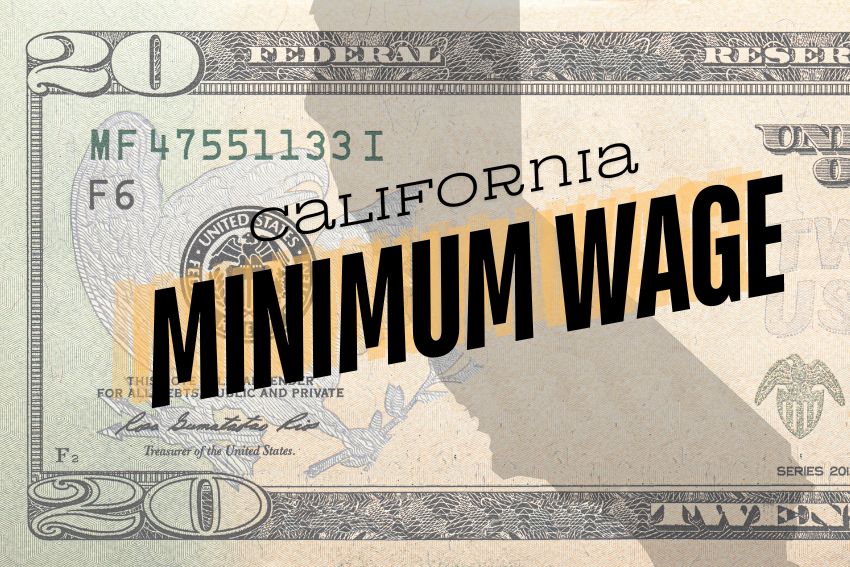Customers come shuffling in with empty stomachs. With crinkled ones, fives, and twenties, customers have their hearts set on one thing: a Big Mac from McDonald’s, a Baconator from Wendy’s, or animal-style fries from In-N-Out. Fast food workers bustle around the kitchen conducting a symphony of clinks and clanks to satisfy the daily lunch rush. A new minimum wage bill is now putting extra dollars in those workers’ pockets.
As of April 1, the State minimum wage was raised by 25% to $20 per hour. Over half a million workers have had their wages increased. This bill impacts fast-food establishments in California that are part of a chain restaurant with at least 60 locations nationally. The bill states: “Any establishment’s gross income must primarily come from immediate consumption sells more than 50%.” –DIR. This means if a business’ income primarily comes from “non-service” food – even if they sell baked items – they are required to follow the bill.
NEW: Fast food workers in CA will now be paid the highest minimum wage of any state in the country.
I just signed a bill that will ensure these workers receive the fair pay they deserve. https://t.co/lWbQhHKWaF
— Gavin Newsom (@GavinNewsom) September 28, 2023
Certain businesses are excluded from this state change. Establishments located inside other businesses such as a restaurant inside of a hotel or grocery market are not required to enact the new pay raise. This also includes event centers that are over 20,000 square feet or have more than 1,000 seats, like a sports stadium. Restaurants in which an owner supplies and funds employees do not have to pay workers $20 an hour.
With every cause comes an effect, with the increased minimum wage in fast food people will see spikes in prices for customers. Rising wages have small business owners scrambling to find ways to keep employees who now make less than fast food workers without going out of business.
Current data and statistics show only 20% of fast-food workers work full-time with 15% being aged 16-19; furthermore, 2.5% of employees are in college/postsecondary ed.
This not only affects business owners but consumers of the products as well. There was a 7% jump in fast-food prices, the highest jump nationwide. But not only does it affect fast food but all businesses, that now have to raise their prices to compete. This is leaving already struggling Californians in an even worse position.
Cristina Colla, owner of Batter Up located off of Fowler and Herndon, shares how the change has affected local businesses including her own.
“If you’ve noticed, fast food is now the price of what a sit-down restaurant was,” Colla said. “Unfortunately, people who once supported them will not be able to. It’s hard to go from a $15 hamburger to a $20 hamburger overnight.”

Economics teacher Robert Foshee has been teaching and preparing FCS seniors for the world of inflation, employment, and taxes for 25 years. In his classroom, Foshee often provides students with insight into how economics affects teen lives, but now he aims to offer his students a real-life example of the effect of economics.
“Short-term students are provided with the opportunities of making more money during and right out of high school,” Foshee said. “Long term it brings challenges to already struggling students. With the increasing price of living conditions and overpriced college tuition.”
New challenges will arise with this new law including lack of customer service.
“With extra pay comes the unfortunate effect of job hiring and higher prices,” Foshee said. “Instead of paying high wages companies are substituting employees for technology.”
The sweet citrus smell fills the air as Senior Grace LaCroix blends vibrant combinations of strawberries, bananas, peaches, and mangoes for incoming customers. LaCroix works at Jamba Juice, one of the many companies affected by the new change.
“Within my workspace, the environment has become stricter and employees are no longer allowed to accept tips because of the increase of pay,” LaCroix said. “They are no longer hiring high school students instead, wanting older employees.”
During summer, students typically have the option of working summer jobs, but with the new change, students are left with fewer and fewer options, especially with chain companies now hesitant to hire high school students. On the flip side, local businesses that are struggling to stay open may offer more opportunities for students to find short-term work.
Local companies that offer $20 Minimum Wage
(OR ANY MAJOR ESTABLISHMENT WITH OVER 60 LOCATIONS NATIONWIDE)
For more from The Feather visit Lunch for $15 and Alton Brown celebrates ‘Good Eats’







